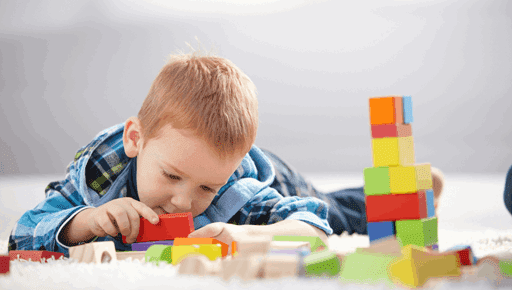PRE-SCHOOL SEMESTER (3-6 YEARS) (PART 3)
SOCIAL-EMOTIONAL DEVELOPMENT
During this period, empathy and communication skills are strengthened in children, leading to an increase in entrepreneurship. If they don't receive positive feedback for their behavior, they may develop a sense of guilt. Although abstract concepts are not fully developed, they begin to take root. However, systematic thinking and processing cannot be done on abstract concepts.
RECOMMENDATIONS FOR FAMILIES
• The family should allow the child to learn through trial and error, as long as there is no harm to the child, for the child to move independently.
• The child's sense of guilt can be prevented from becoming too intense by having them correct their mistakes and talking to them.
PSYCHO-MOTOR DEVELOPMENT
During this period, the child actively uses their finger muscles, and if the necessary importance is given to the child's psycho-motor development, their hand-eye coordination will greatly improve. In terms of the development of large muscles, the child's movements become more diverse. They can perform a variety of movements with their feet. For example; they can jump, hop on one or both feet, walk backwards, crawl under an object, jump over an object that is a certain height off the ground, walk on their tiptoes, reach for objects, throw objects a certain distance, walk in a coordinated manner while holding an object, walk in a coordinated manner along a certain line or space, jump backwards, and perform stretching movements (such as turning their head left-right, forward-backward, moving their feet while sitting, opening their arms to the sides, turning their hips, etc.).
RECOMMENDATIONS FOR FAMILIES
• The family should give the child responsibilities during this period, such as cleaning up their belongings or organizing their room.
• They should also provide the child with opportunities to draw at home.
• Collecting materials at home and allowing the child to use them, such as paint, glue, scissors, etc., helps the child create their own activities and supports their hand-eye coordination. When we say "collecting materials," we mean unused materials that are already available in the home and will not harm the child when used, such as string, eggshells, beads, bottle caps, etc.
SELF-CARE
During this period, the child can independently use the toilet, eat on their own, cut objects with a plastic knife, brush their teeth, comb their hair, dress themselves, fasten buttons, zip up their clothing, and open and close things with velcro. Additionally, they can put on their shoes independently, but the family should not be overly pressuring in teaching the child to tie their shoelaces during this period. The child can also independently tidy up their toys and organize their surroundings.



 (4).png?size=512)




.png?size=512)



